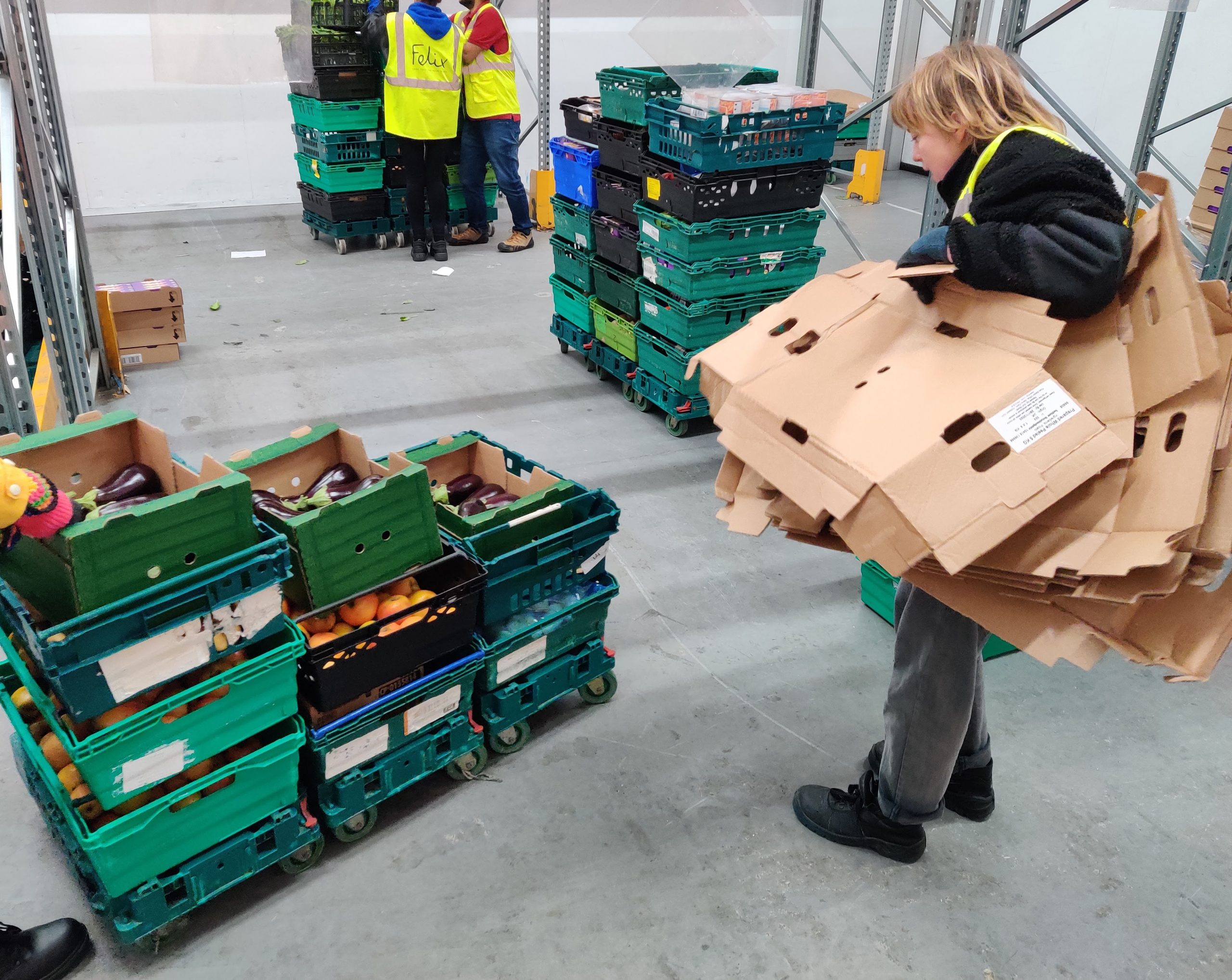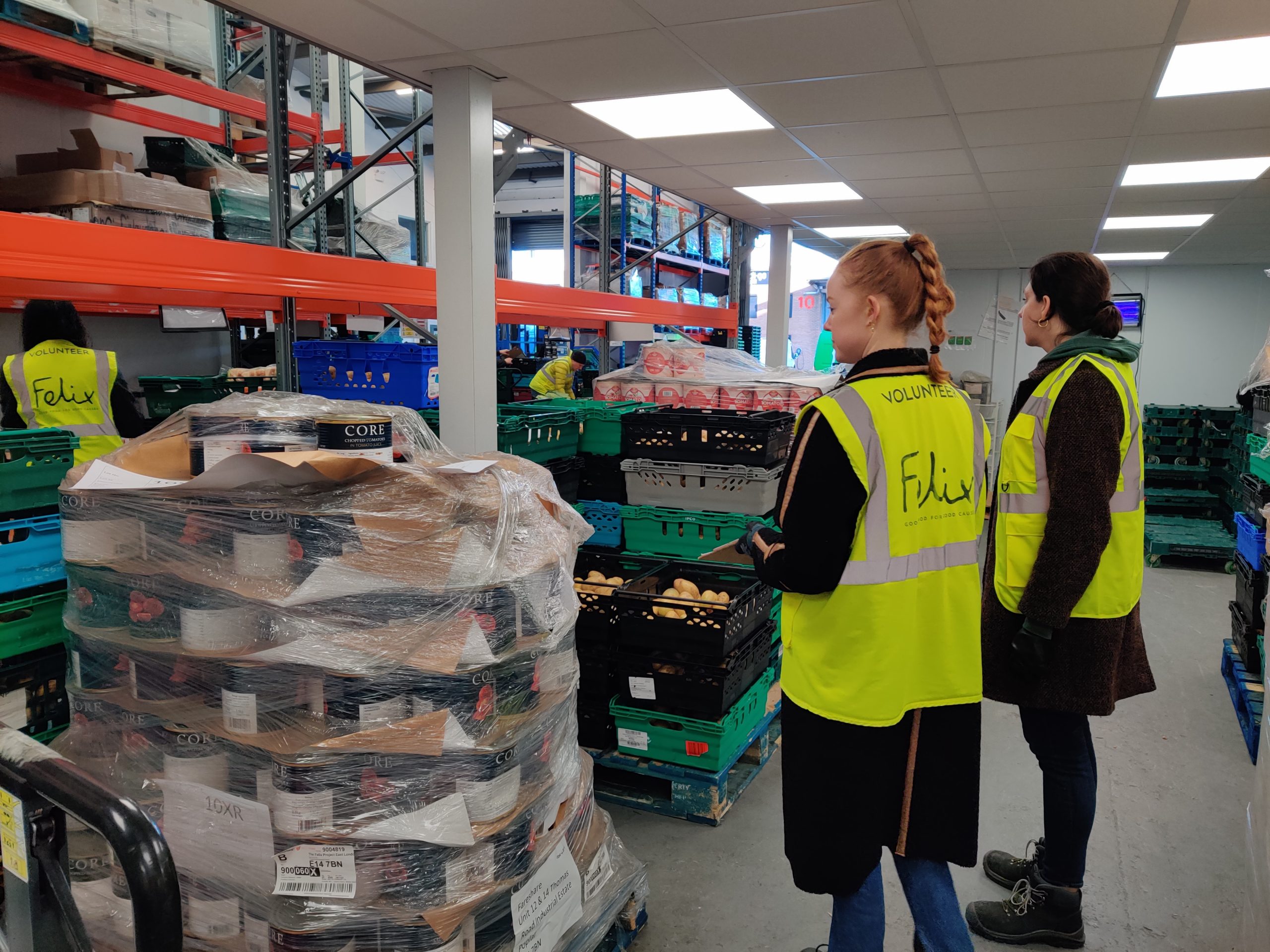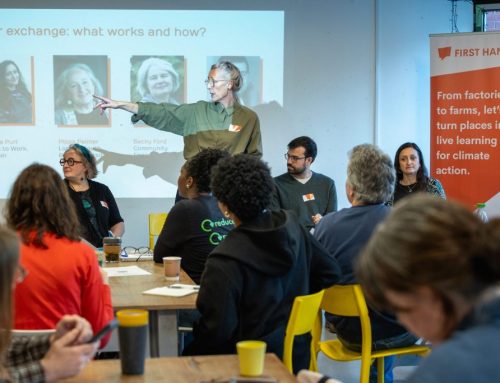First Hand: The Felix Project
Hands-on tour and workshop at The Felix Project, a food redistribution charity fighting food waste and hunger in London
About the Felix Project
The Felix Project rescues surplus food from going to waste from supermarkets, wholesalers, farms and restaurants. From their huge depot and kitchen in London’s Poplar, high quality meals are cooked and redistributed to schools and charities, reaching vulnerable people or those who can’t afford fresh, healthy food.
In 2023, The Felix Project and its 15,000 volunteers rescued 13,349 tonnes of food from 322 suppliers and redistributed the equivalent of 32 million meals.
A learning site for transformative skills
We used existing volunteer shifts – critical to Felix’s operations, to design climate action learning experiences at the Poplar depot. Learners were able to observe and practice skills in powerful hands-on sessions in the sorting depot and in the kitchen, where food is processed on an industrial scale and changing daily depending on incoming stock.
We structured our tour around building knowledge, understanding and skills in the three areas of our early curriculum: Complexity, Creativity and Collaboration. We brought these to life using approaches to teaching and learning including Real World Learning and Community Connected Learning.
Creativity in practice
Menu design
Chefs on site design a daily menu with no recipe – averaging 4,500 portions a day. Responding to daily deliveries and fast-expiring food ensures no day is ever the same.
Ingredient use
Demonstrating resourcefulness by making the best use of expensive spices. Valuing rare ingredients by using meat sparingly and extending chicken with chickpeas.
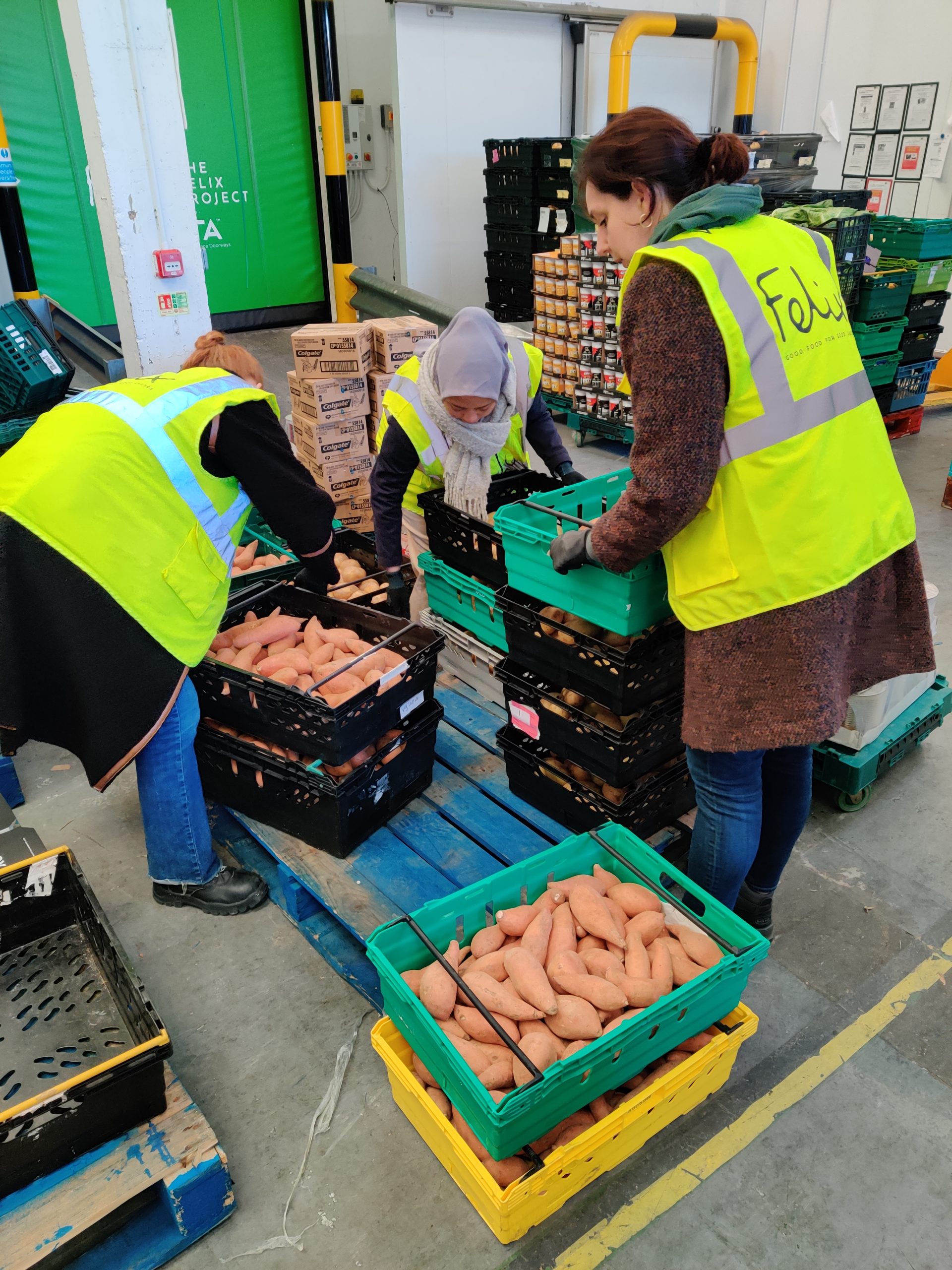
Agility and resourcefulness
Collaboration in practice
Relationship-centred
The Felix Project operation is designed around purpose and relationships with partners and end-user. Regular volunteer days are encouraged so drivers can build relationships with community organisations. The first ingredient on cooked meals is always ‘compassion’.
Volunteer infrastructure
Creating the infrastructure for 15,000 volunteers to contribute, from one-off shift to full time equivalent. Designing training, instructions and processes that support effective working.
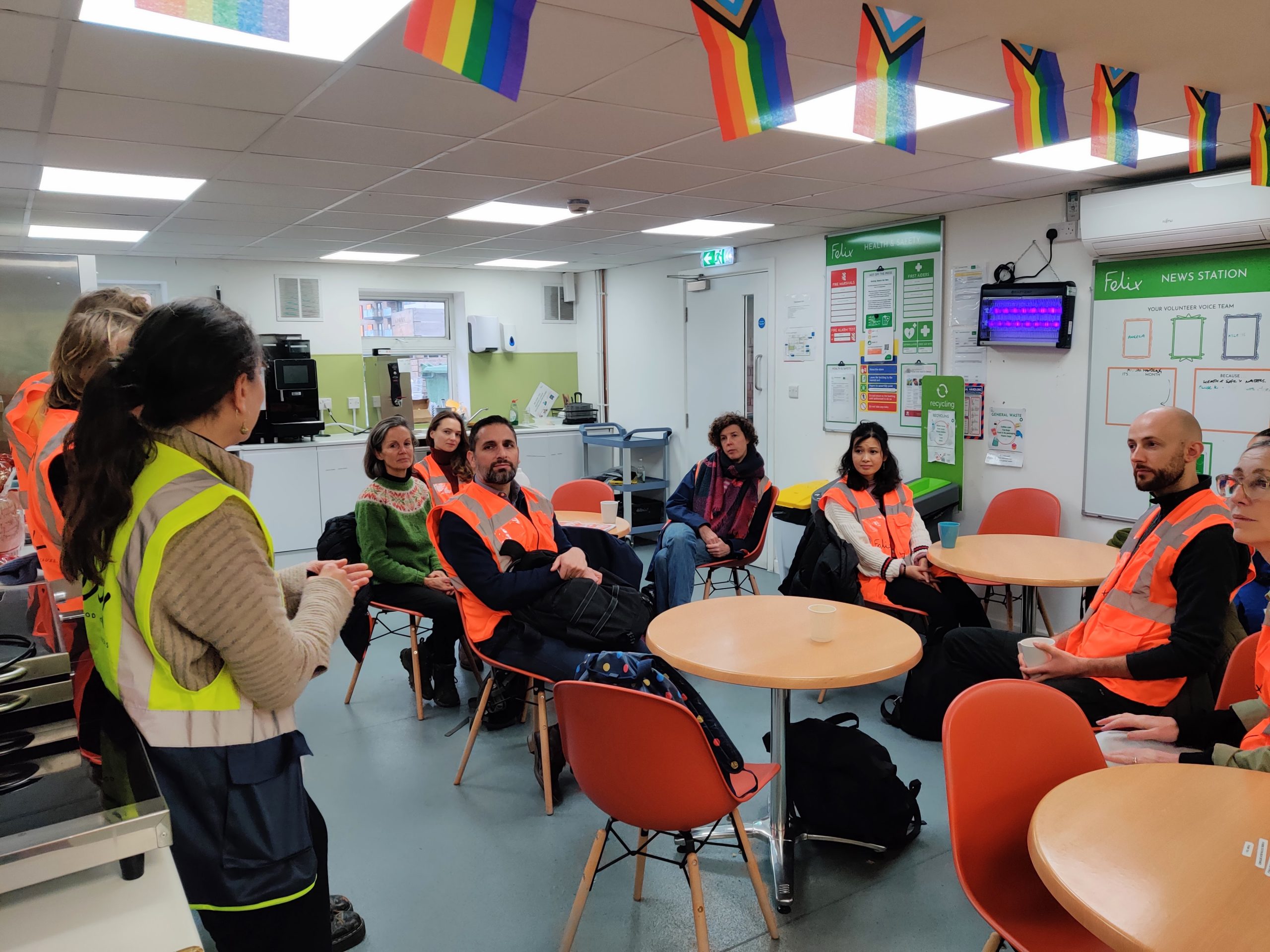
Designing interactions and processes for effective working
Complexity in practice
Working into a system
Understanding the complexity of the food system and the risks of dependency on food supply and unintended consequences.
Reflecting on The Felix Project’s role in the wider system and iterating how success is measured: moving from scale to impact.
Regulations
Not fitting neatly into any category. Needing to meet two sets of regulations: both a factory and commercial kitchen.
Campaigning
Evolving to maximise impact in the wider system by building a campaigning role, recognising the potential of influence on policymakers and the wider supply chain.
Find out more about The Felix Project
